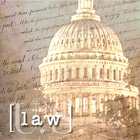
Under Article VI of the US Constitution: Under Article 1 of the Convention against Torture: Under Article 2 of the Convention against Torture: Under Article 4 of the Convention against Torture: Under the US Foreign Assistance Act: Under Article I, Section 8, of the US Constitution: Under US Alien Tort Claims Act (1789): |
SERIOUS LEGAL PROBLEMS INHERENT IN GHOST FLIGHTS & 'EXTRAORDINARY RENDITION' 9 December 2005 The principal legal problem relating to alleged "ghost flights", secret interrogations and the policy of "extraordinary rendition" is the extralegal nature of all three techniques. The issue centers on these processes being designed to operate beyond the scope of ordinary legal constraints. The flights were allegedly not disclosed as transporting criminal suspects —though records do exist that the flights occurred—, likely because there were no criminal charges pending, no evidence presented to any court and no extradition orders requested or issued. This is why rendition is "extraordinary", because it evades the normal legal channels for processing criminal allegations, charges and suspects across international borders. Such measures, due to their secrecy and lack of judicial review, permit those who employ them to circumvent the normal legal process and to operate in a parallel dimension free from public scrutiny, even though they may claim they have every intention of upholding and observing existing law. This is where leaders of representative democracies run into serious ethical and legal conflicts: how to observe the rule of law while employing methods that appear to make it unnecessary to do so? Secret detentions, beyond the reach of judicial review, reached a milestone during the 1970s and 1980s in the southern cone of Latin America, through a collaborative effort known as "Operation Condor", still under investigation in many countries. Former Chilean dictator, Augusto Pinochet, suspected of involvement in 59 separate torture cases, may face charges under new laws for involvement in directing Operation Condor. In the Condor cases, detentions without charge to undisclosed locations, sometimes including renditions to other countries, became known as "disappearances", largely because most of those taken were eventually killed. In the case of current US policy, the term in common usage is "extraordinary rendition", because the aim is not, or does not appear to be, the mysterious and permanent disappearance of suspects, but rather to hold them indefinitely, without charge —either as a substitute for law enforcement or for the perceived strategic or security value of doing so. That is, nevertheless, illegal under US law. Though the administration has argued it does not apply to foreign nationals, the US Constitution, under the Sixth Amendment, specifically requires that "In all criminal prosecutions, the accused shall enjoy the right to a speedy and public trial, by an impartial jury of the State and district wherein the crime shall have been committed..." It also confers the right to legal representation —upheld this year by the Supreme Court—, to be informed of the charges, to confront one's accuser(s) and to "have compulsory process for obtaining witnesses in his favor". The administration's argument that the (purported) absence of US protections for foreigners accused of crimes against national security permits detention without charge appears to be contradicted by Supreme Court precedent. In the Paquete Habana case of 1900, relating to piracy in the 1898 Spanish-American war, the high court ruled that: "...where there is no treaty and no controlling executive or legislative act or judicial decision, resort must be had to the customs and usages of civilized nations, and, as evidence of these, to the works of jurists... not for the speculations of their authors concerning what the law ought to be, but for trustworthy evidence of what the law really is." It is clear that secret detentions are not permissible under US constitutional law. This appears, the, to explain the administration's refusal to admit to the growing body of evidence and the spreading controversy regarding alleged CIA detainee transfer flights, stopovers, renditions and detention facilities, all of which may have been kept secret, though some reports suggest complicity from host governments. Now that Sec. Rice has stated clearly that the UN Convention Against Torture (CAT), ratified by the US Senate, governs US personnel at home as well as abroad, Attorney General Alberto Gonzales has said "There's no disagreement" between White House policy and Rice's remarks. Yet White House press secretary Scott McClellan tried to minimize the impact of her statement, saying "the distinction here is between policy and law". Though the US Constitution clearly states that any treaty signed and ratified becomes "the supreme Law of the Land", the White House now argues that the CAT does not adequately define torture or "cruel and inhumane, degrading treatment", noting the Senate placed the condition upon ratification that the US Constitution would supercede the CAT. It's an odd condition to have put on ratification to begin with, and an odd one to cite, considering the US Constitution, by its own provision, would recognize the CAT as equal to its provisions and because the Eighth Amendment also explicitly forbids "cruel and unusual punishment". Sec. Rice has been quoted as saying that the policy of rendition is "not unique" to the government she represents, but that is hardly a defense when one's nation has legislated that foreign policy must promote human rights [see Foreign Assistance Act, Section 502b, at left]. Perhaps it is an attempt to address the meaning of the word "unusual" in the Eighth Amendment. There is also the bedrock issue of national sovereignty: it would be a serious violation of international law to transfer prisoners onto, through or away from a given country, if that nation's laws require extradition hearings to decide whether the prisoner's destination will abide by acceptable judicial standards in judicial proceedings. Hinting at complicity of foreign leaders, whose countries were involved in the flights, renditions and/or detention centers, Rice did appear to answer this issue, saying the US "has fully respected the sovereignty of other countries that cooperate in these matters." She did not address concerns, however, about the possibility that some nations may have been kept in the dark as to the nature of the CIA-operated flights, precisely because they were not likely to coooperate. [s]
RICE STAKES OUT "NUANCED" POSITION ON ABDUCTIONS, TORTURE Amid growing concern relating to press reports of undisclosed CIA flights through or over European nations, with possible connections to the abduction of terror suspects and the use of secret detention centers, US Secretary of State Condoleezza Rice has sought to defend US policy. She admitted that the US might make mistakes in the "war on terror", but did not make specific reference to controversy over the alleged abduction of an innocent German citizen who, after 5 months of questioning in Afghanistan, proved to be a case of mistaken identity. STORY UPDATE: 8 December Update:
BACKGROUND: Under Part I, Article II, Section 1 of the treaty, "Each State Party shall take effective legislative, administrative, judicial or other measures to prevent acts of torture in any territory under its jurisdiction." [emphasis added] the US Constitution specifically requires that ratification of any treaty binds the standards of the US system of laws to those of the ratified treaty. Some legal clauses relevant to stories in this special section can be found in selected excerpts to the left of this page, above. |
||||||||||||
|
|||||||||||||

